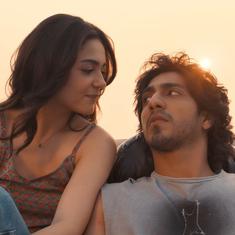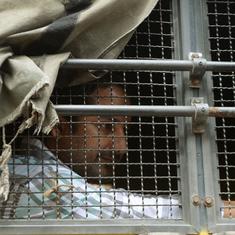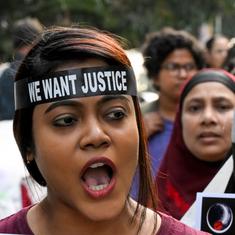He is the man who is credited with reviving 1970s-style Hindi film dialogue, creating lines that rhyme and words that are potent ammunition for the characters that fire them at will. Rajat Aroraa, who has written such hits as Once Upon a Time in Mumbaai and The Dirty Picture, is back on a different pitch. The 40-year-old writer, who started out with the ridiculously successful show CID on television, has authored the upcoming biopic Azhar, based on the life of Mohammed Azharuddin, one of most controversial and successful captains of the Indian cricket team. In a conversation with Scroll.in, Aroraa talks about the challenges of making dialogue work for a film about cricket and why we should not judge a biopic by its trailer.
You have always dealt with fictional characters. What was your biggest challenge while working on ‘Azhar’?
The biggest challenge was to maintain the authenticity of the story while ensuring that there is enough drama in it for the audiences. One cannot take too many liberties with what has happened in a person’s life. The tough task was to strike a balance between reality and cinematic requirements. Sometimes a simple, seemingly inconsequential event in someone’s life could be a big moment for the audience. My endeavour was to look for those moments that could be converted to the screen, while sticking to facts.
You are known for a certain kind of dialogue…
And what is that?
The kind that gets people whistling and cheering every time the characters mouth a line. The lines work in ‘Once Upon a Time in Mumbaai’ and ‘The Dirty Picture’, which have flamboyant and larger-than-life characters. But Azharuddin is different – a shy, introverted man of few words. How did you work the brief?
It is always the subject that shapes the dialogues. Not the other way around. Each film has its own colour that colours the dialogues. With Once Upon a Time, we wanted to break away from the usual gangster film dialogues, which had been done to death, which is why we wanted to adopt the 70s’ style of writing. In The Dirty Picture, which was set in the ’80s, the character was flamboyant, unafraid to speak her mind, bindaas. So we wrote the dialogues accordingly.
Azhar may be a man of few words, but he does have profound thoughts. And it was evident when we met him and interacted with him. He speaks really well. And that is what we wanted to capture in this film. He is shy and an introvert but he does open up.
That sense of drama, what you say makes a character appear larger-than-life, is also created by what the characters around him have to say and do. That action-reaction is what makes the protagonist gain cinematic stature. It is up to the audience to find out if these moments are whistle-worthy or not. But at no point could I make him appear as someone he is not.
Reactions to the trailer of ‘Azhar’ have been mixed. Many fans of the former captain fear that the film will be painted in strokes that are too broad for a biopic on such a controversial and complex figure.
Most of the reactions I have seen are positive. Having said that, it is important to understand that this is not a sports movie. This is a film about a man and his personal and professionals highs and lows. His spectacular rise, dramatic fall and rise from the ashes again. It is difficult to capture the essence of a man who has played some spectacular cricket for two decades in a two-hour film. It is equally difficult to show all that the film is about in a two-minute clip.
A film based on sports will deal with emotions differently from a normal film. And this is more about the man than the sport, as such. So yes, we wanted to tell people that there is a bit of this and a bit of that, the euphoria around him when he was at his peak, and his disgrace, and vindication.
How involved was Azharuddin during the development of the screenplay and the filming?
He was extremely generous with his time and inputs. When we showed him the story, he pointed out errors and anomalies that no research or fact check could have revealed. For instance, only he would know who were the people with him in the dressing room on a certain day. He was extremely candid about how and when things happened in his life. He would also point out if we got carried away with a scene or an episode or something appeared completely OTT.
I have incorporated all his inputs in the script. Emraan Hashmi has done a splendid job of mirroring him – Azhar helped him master the famous flick shot and get his stance right. But Emraan also perfected Azhar’s smallest of tics and mannerisms along with the bigger aspects of his physicality.
In terms of source material, what was it about his life that was most attractive to you as a writer?
Azhar’s life has been all about magnificent highs and terrible lows. When there is such an emotional graph to play around with, your job as a writer gets much easier. But what struck me as especially tragic about his life, the man who has always been one of my favourite players of the game, is how he has always missed out on the big things in life by a whisker.
For instance, his highest was 199, he played 99 tests… and then there are more such personal and professionals twists that make you realise how every time life gave him something, it always took away some equally important things. That’s the sense I got while researching his life and writing the story. And that is what I have tried to convey in the screenplay.










